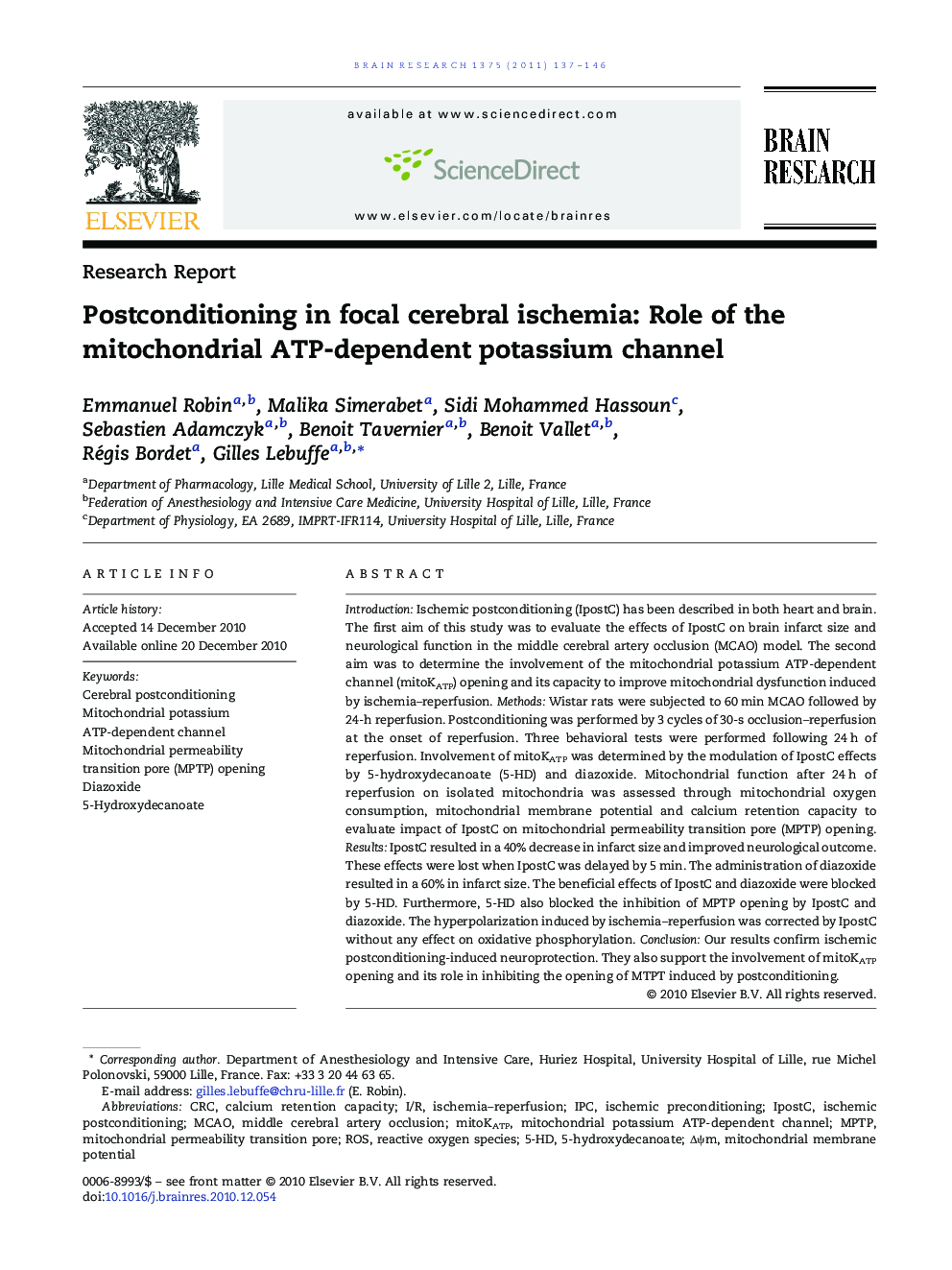| کد مقاله | کد نشریه | سال انتشار | مقاله انگلیسی | نسخه تمام متن |
|---|---|---|---|---|
| 4326160 | 1614064 | 2011 | 10 صفحه PDF | دانلود رایگان |

IntroductionIschemic postconditioning (IpostC) has been described in both heart and brain. The first aim of this study was to evaluate the effects of IpostC on brain infarct size and neurological function in the middle cerebral artery occlusion (MCAO) model. The second aim was to determine the involvement of the mitochondrial potassium ATP-dependent channel (mitoKATP) opening and its capacity to improve mitochondrial dysfunction induced by ischemia–reperfusion.MethodsWistar rats were subjected to 60 min MCAO followed by 24-h reperfusion. Postconditioning was performed by 3 cycles of 30-s occlusion–reperfusion at the onset of reperfusion. Three behavioral tests were performed following 24 h of reperfusion. Involvement of mitoKATP was determined by the modulation of IpostC effects by 5-hydroxydecanoate (5-HD) and diazoxide. Mitochondrial function after 24 h of reperfusion on isolated mitochondria was assessed through mitochondrial oxygen consumption, mitochondrial membrane potential and calcium retention capacity to evaluate impact of IpostC on mitochondrial permeability transition pore (MPTP) opening.ResultsIpostC resulted in a 40% decrease in infarct size and improved neurological outcome. These effects were lost when IpostC was delayed by 5 min. The administration of diazoxide resulted in a 60% in infarct size. The beneficial effects of IpostC and diazoxide were blocked by 5-HD. Furthermore, 5-HD also blocked the inhibition of MPTP opening by IpostC and diazoxide. The hyperpolarization induced by ischemia–reperfusion was corrected by IpostC without any effect on oxidative phosphorylation.ConclusionOur results confirm ischemic postconditioning-induced neuroprotection. They also support the involvement of mitoKATP opening and its role in inhibiting the opening of MTPT induced by postconditioning.
Research highlights
► Ischemic postconditioning induces a 40% reduction in infarct size and improves neurological score.
► Opening of the mitochondrial potassium ATP-dependent channel reproduces this neuroprotection.
► Opening of the mitochondrial potassium ATP-dependent channel leads to inhibition of the mitochondrial permeability transition pore.
► Cerebral postconditioning induces a better recovery of the mitochondrial membrane potential.
Journal: Brain Research - Volume 1375, 23 February 2011, Pages 137–146